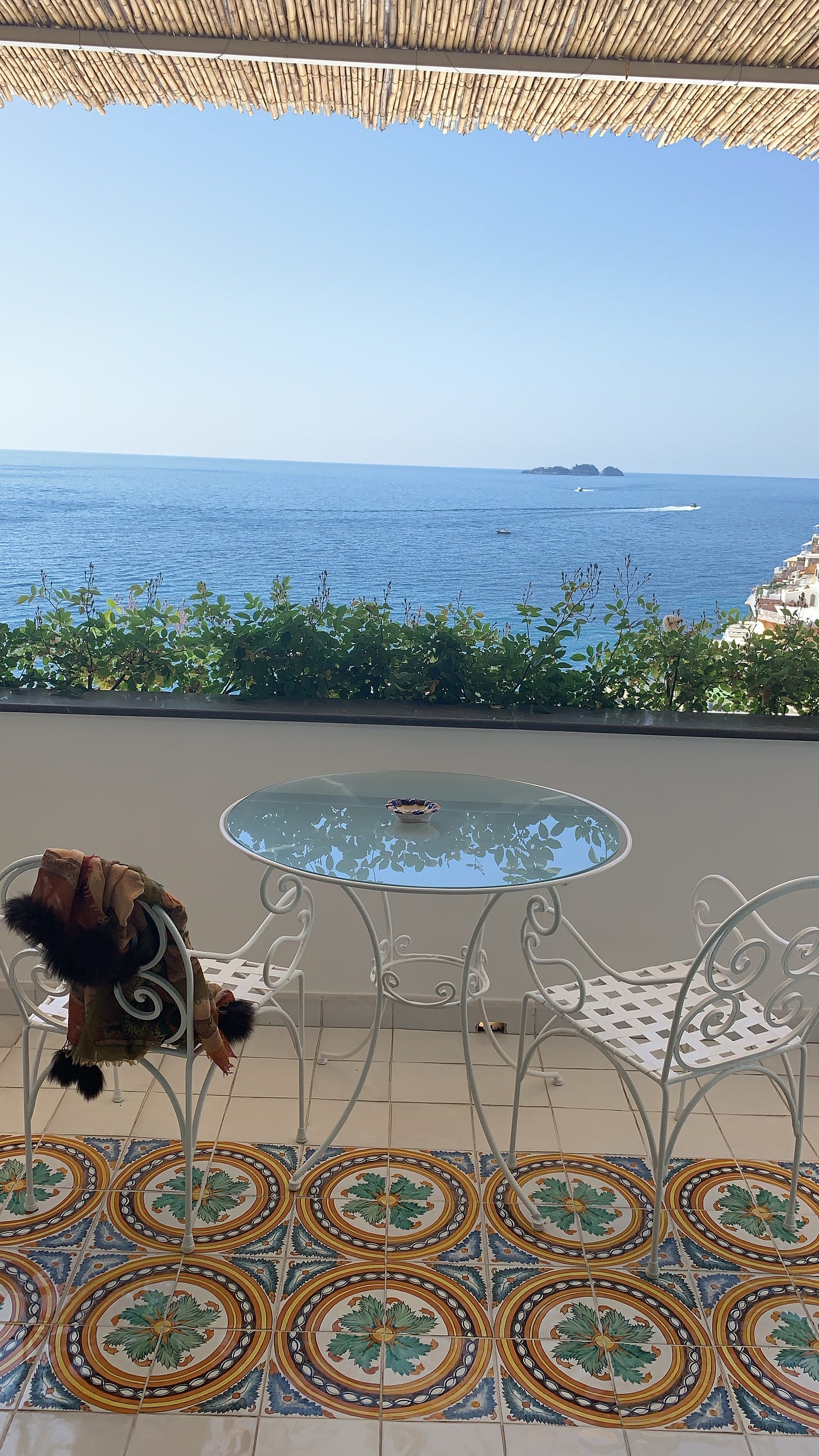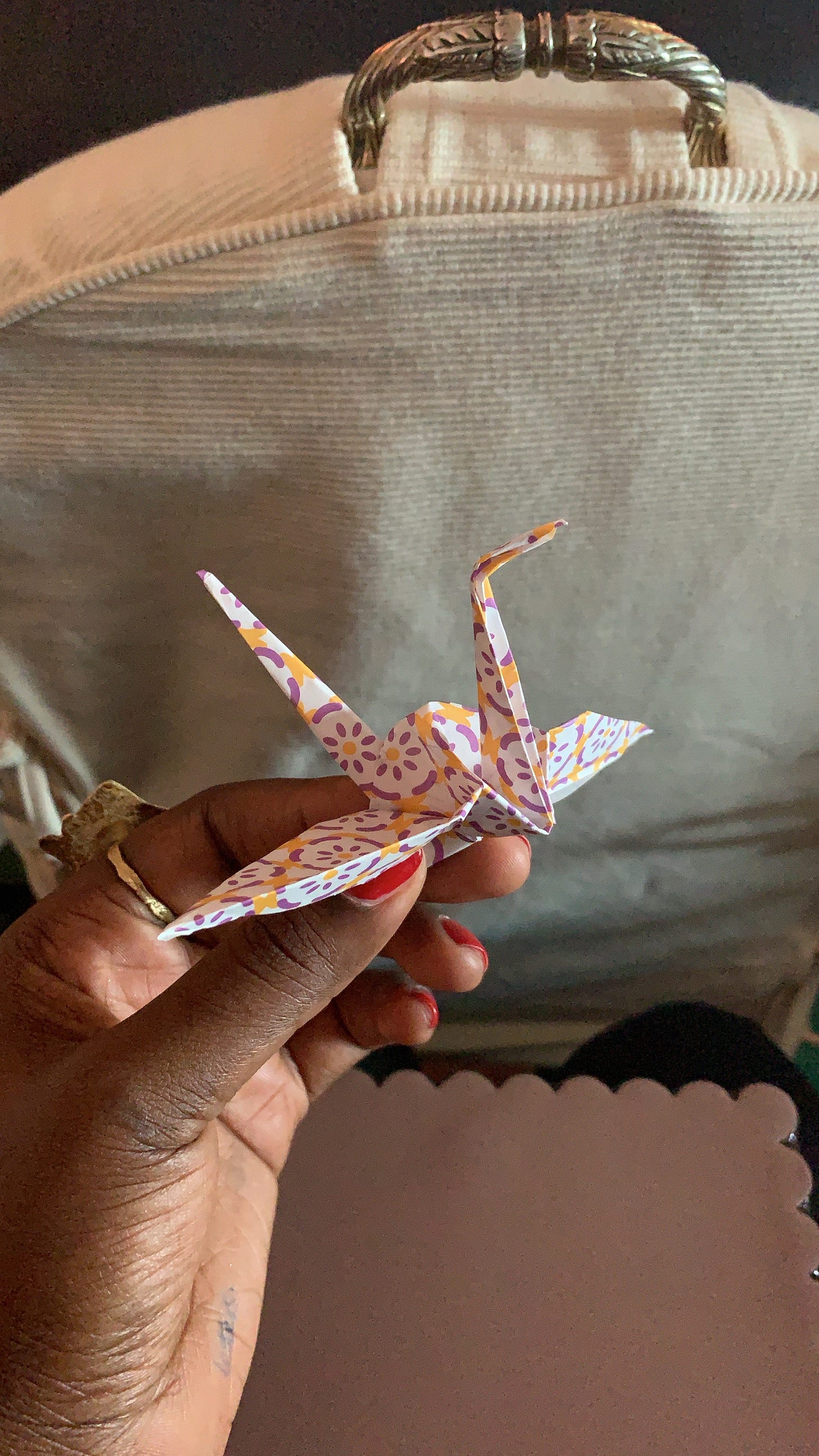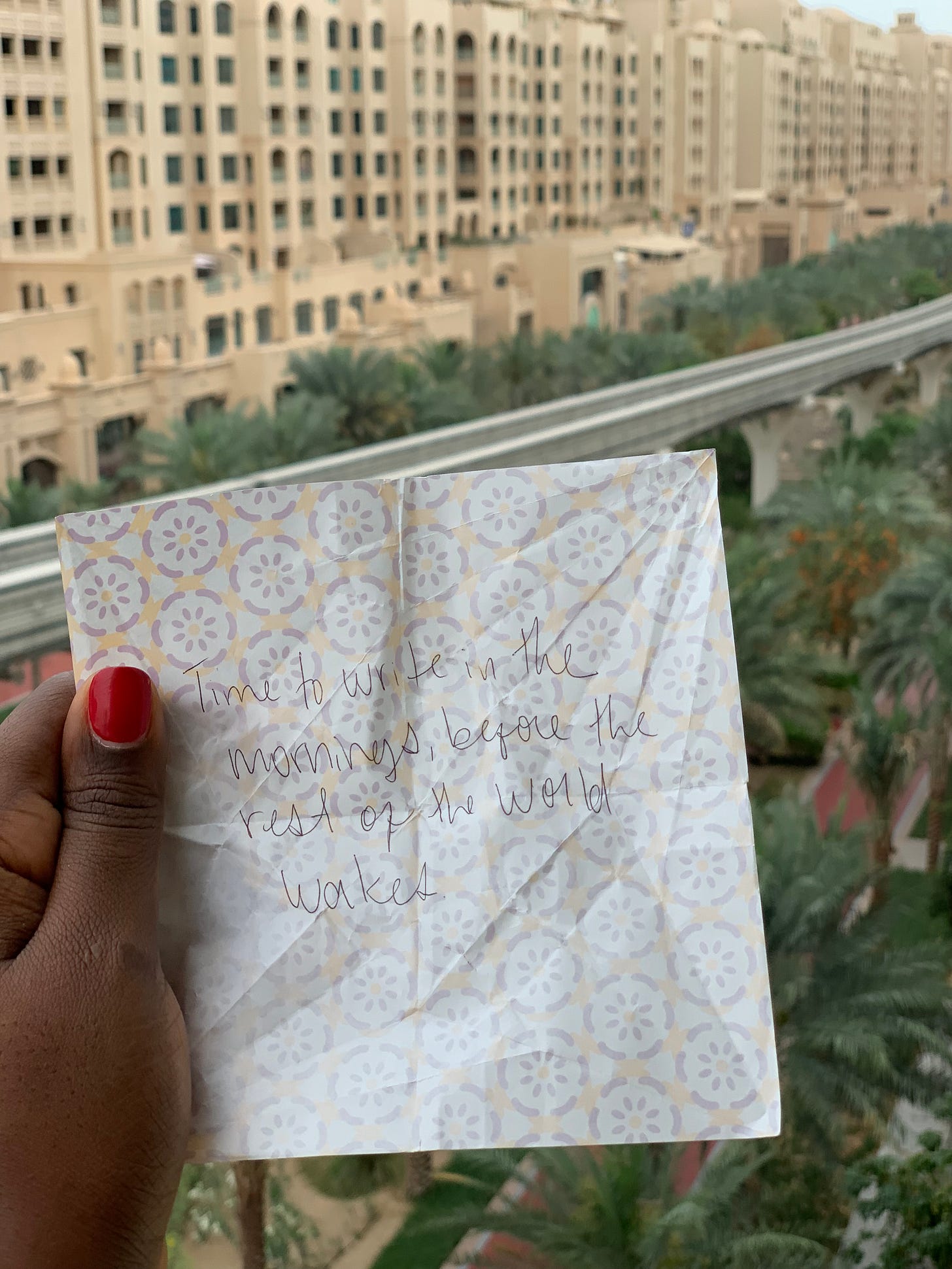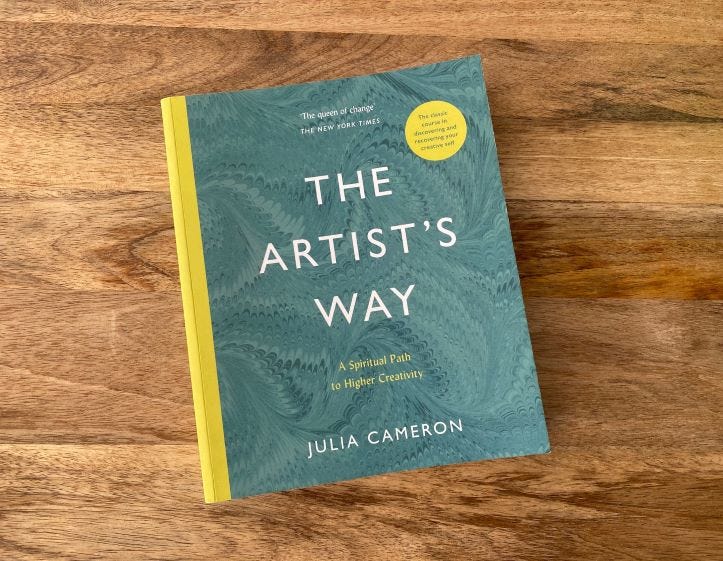Write Like You Have a Deal with God.
The first time I heard these words, I stopped in my tracks. It was a Saturday morning, and I was cleaning my apartment as voices from a podcast blared through my speakers. “Write like you have a deal with God,” one of the men being interviewed said. That was his secret sauce, his way of staying accountable and finishing his projects.
Wow, I remember thinking. It's truly profound to honor our creativity by recognizing that the talent we've been given isn't ours to hoard, hide, or use sporadically when the mood strikes. Instead, we should approach each day as if we've entered into a pact with God to not only show up but to perform at an exceptional level.
In that moment, I felt a shift within me. His words lingered for a while, inspiring me deeply. But, like many profound moments, they soon faded into the busyness of routine, life, and everyday stuff.
It has been a few years since I listened to that podcast, and still, I hesitate to approach my writing this way, almost as though I am afraid to disappoint God. If I make a deal with Him, what happens when I am tired? What happens when I am busy? I am much more comfortable with my part-time writing schedule, even if it is within this same comfort that my dread lives.
Let me explain.
I used to describe myself as a writer who doesn’t like to write. It was something I said once at a writer’s retreat, and it got a few laughs, so I kept saying it until it became true. It wasn’t that I was lying when I first said it, but by introducing myself that way, I somehow removed the option of joy from my writing process. I replaced it with agonizing thoughts about writing, shame-filled thoughts about not writing, and long excuses for why I couldn’t write.
In the times where I did write, I would re-read my words, proud of myself for one or two chapters, and bask in the glory of a little bit of writing for months. I would send excerpts of my work to friends, competitions, family members, and I would eat up their praise, my ego full, while the work remained unfinished. While some people may be familiar with the work I have managed to finish, many are unfamiliar with the heaps of unfinished scripts, manuscripts, and treatments that sit on my computer, waiting for me to become a writer who likes to write—or better said, a writer who writes like they have a deal with God.
I desperately want to emulate Maya Angelou, whom I imagine wrote daily to the soft chirping of birds by her expansive French windows, or Shonda Rhimes, who locks herself away to breathe life into her characters. Instead, I find myself doom scrolling through Instagram and Pinterest, or watching films others have created. Every week, my screen time notification shames me. I can no longer lie to myself about not having time to write—I had six hours that I willingly handed over to my phone.
Sometimes, I visit bookstores and simply gaze at the rows upon rows of books—each representing a finished piece of work. Whether good or bad, they are all complete, and seeing them reminds me that people out there are writing, finishing, and publishing. It gives me hope and reinforces that my dreams are valid. However, I know that a dream without action is just that—a dream.
People often see us differently than we see ourselves. Many perceive me as someone fearlessly navigating this creative path and succeeding in all I undertake. But if that were truly the case, this letter would be titled "Mastering Creativity," not "Practicing Creativity.".
The term "practice" here refers to the usual, habitual, or expected way of doing something. This journal serves as an expression of practice, as I've committed to making this a weekly habit—a way to force myself to write, even when I don't feel like it. Yet, therein lies my mistake. I doubt I am reliable enough to make a deal with myself. I am not the originator of the gift I possess, so what kind of agreement can I forge that would honor my creativity unconditionally? On days when anxiety visits or, God forbid – grief, can I guarantee that I will continue to write? I don’t think that I can.
And so, here I am, opting for a different approach. I am admitting that my creative practice is nothing if I do not have my creator. I invite God to partner with me on my writing journey as I practice creativity daily. I once asked a friend who is a published author how she handles writer's block. "Oh, I don’t believe in that," she said, shrugging her shoulders casually. Perplexed, I pressed further. "What do you mean?" I said.
"My creativity comes from God, so it can never be blocked," she replied matter-of-factly.
Everything in life boils down to perspective. If you intertwine your perspective on writing with God, the Universe's creator, you might start viewing each new day as a blank page. It doesn't matter what you did or didn't accomplish yesterday; what matters is today.
So, instead of dwelling on the 90 or 9,000 pages you have left, focus on the pages you can write today. A friend of mine always used to say, "Why do you think in the Lord's Prayer we ask for our daily bread, not a loaf for the week? Because we require sustenance every day."
Learn to ask for creativity daily, and when you receive it, use it.
Creative Practice
Start by listing every single creative task you've been working on, abandoned, or were unhappy with. Next, rearrange these tasks in order of priority—'priority' here might also mean the task that most resonates with your heart. Highlight the top task. Determine how much daily time you need to devote to this task to see it to completion. Remember, it doesn't need to be a massive chunk of your day.
Consider this perspective: if you write five pages of your screenplay just three days a week, you'll have your first draft (90 pages) in six weeks. This might mean sacrificing two hours of screen time every day, but it's entirely achievable.
The main point of this exercise is to never give up and even when you miss a day or two or three, you can always, always start again, until you get to the finish line.
Recommended Reading
If you haven’t read this before, do yourself a favour and order it now. If you have read it, I recommend re-reading it. It requires a lot of commitment because Julia doesn’t play when it comes to tasks, but I promise you, it’s so worth it.
Rooting for us.
Xo,
Nicole






Thank you, Nicole for sharing your thoughts.
Most of the issues we have as writers, sometimes, boils down to wanting attain perfection from the go. Waiting for the perfect hook. Perfect ways to articulate our ideas. Perfect ending, etc.
But, indeed, there's no such thing as "perfect anything."
Waiting on it is the fastest way to kill ideas.
So in essence, keep writing. After all, who's judging?.
Don't worry about the errors, muddy thinking and whatnots.
The more you write, the clearer your thinking and the better you become. Keep writing.
This message is for myself, by the way🙂.
Thank you for sharing once again, Nicole.
Also, thank you for adding audio. I read, then listened.